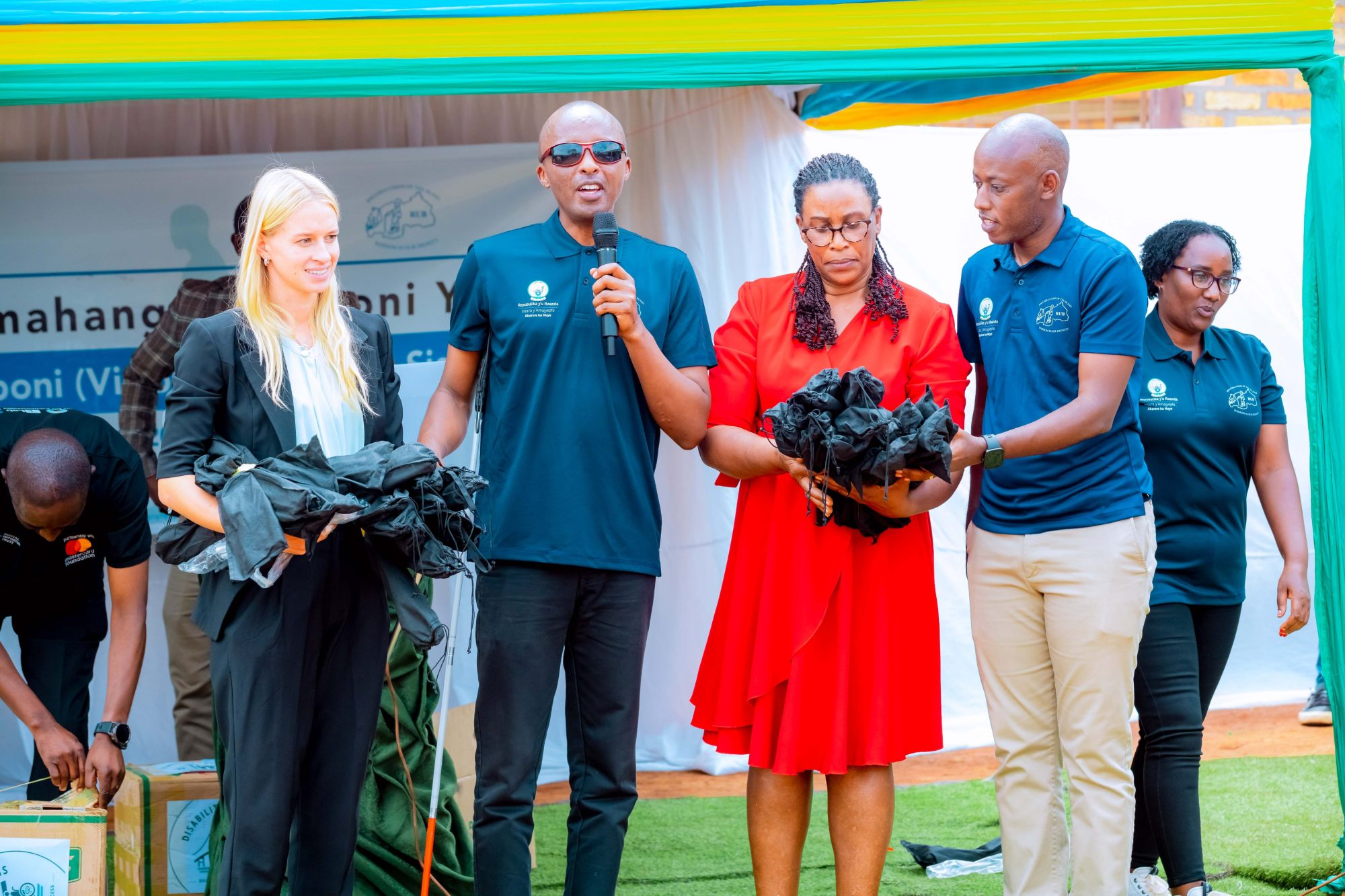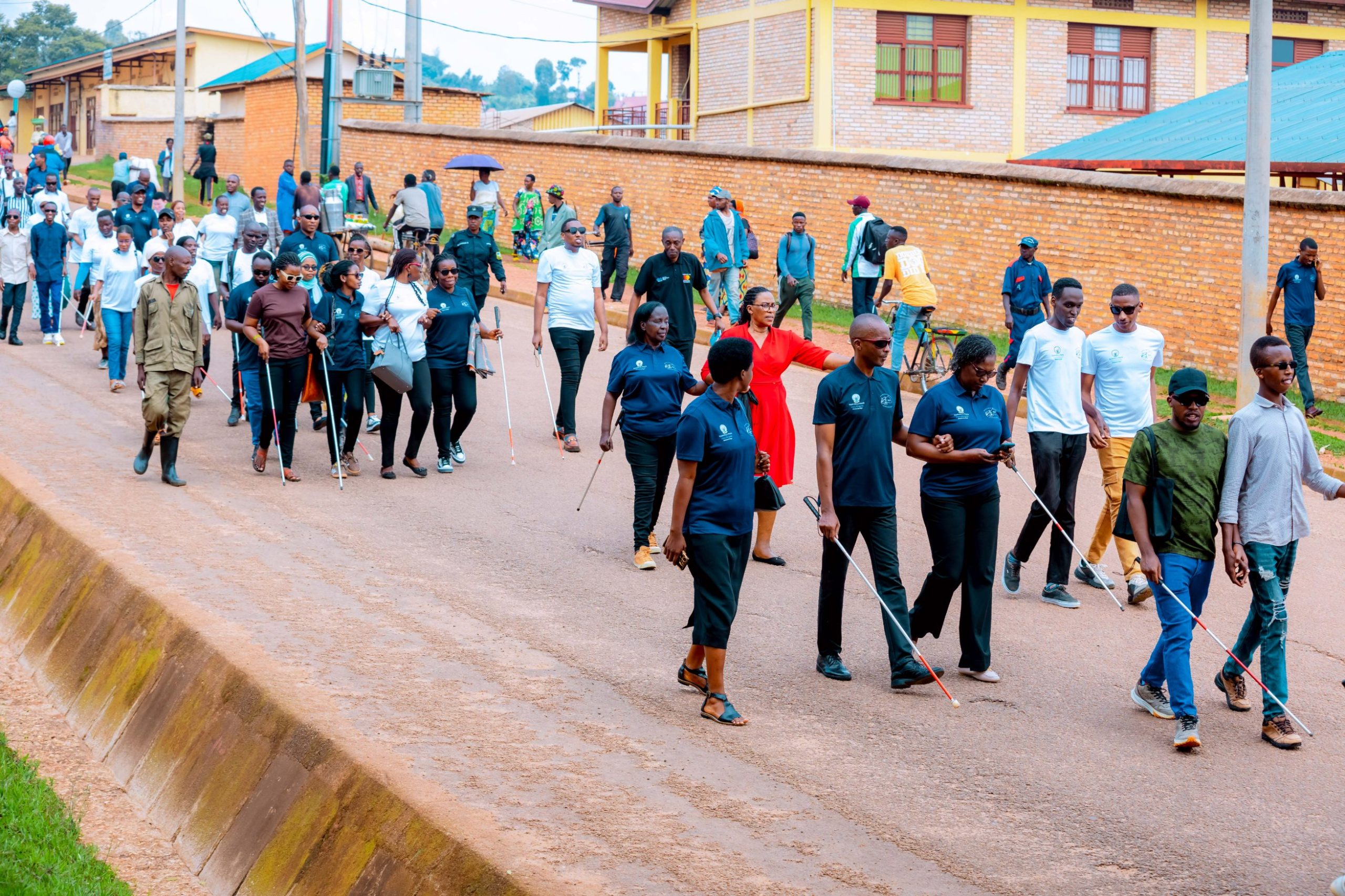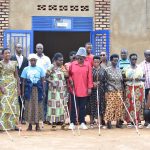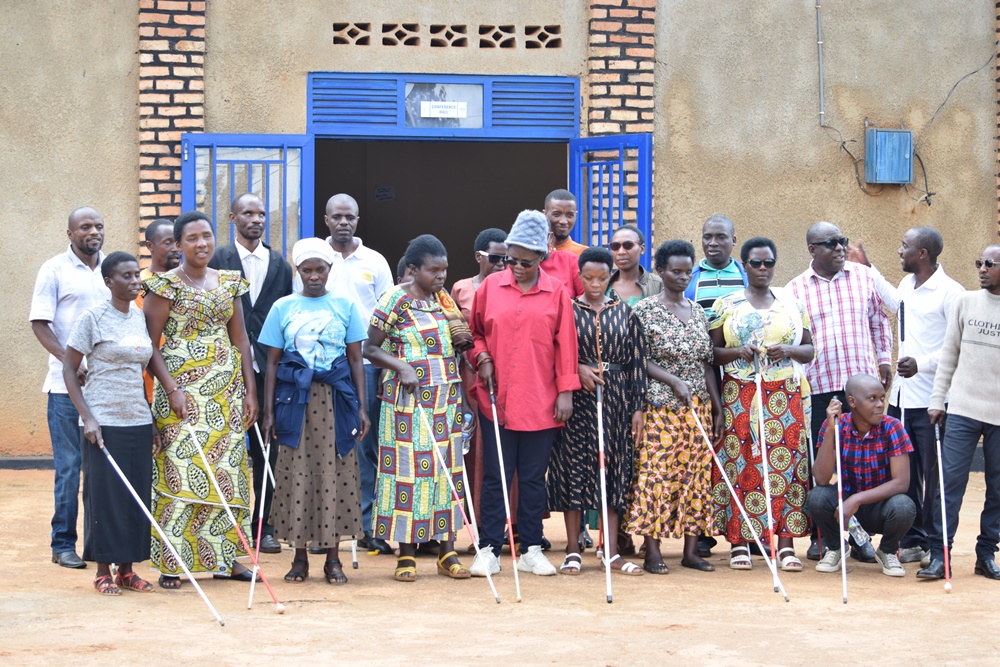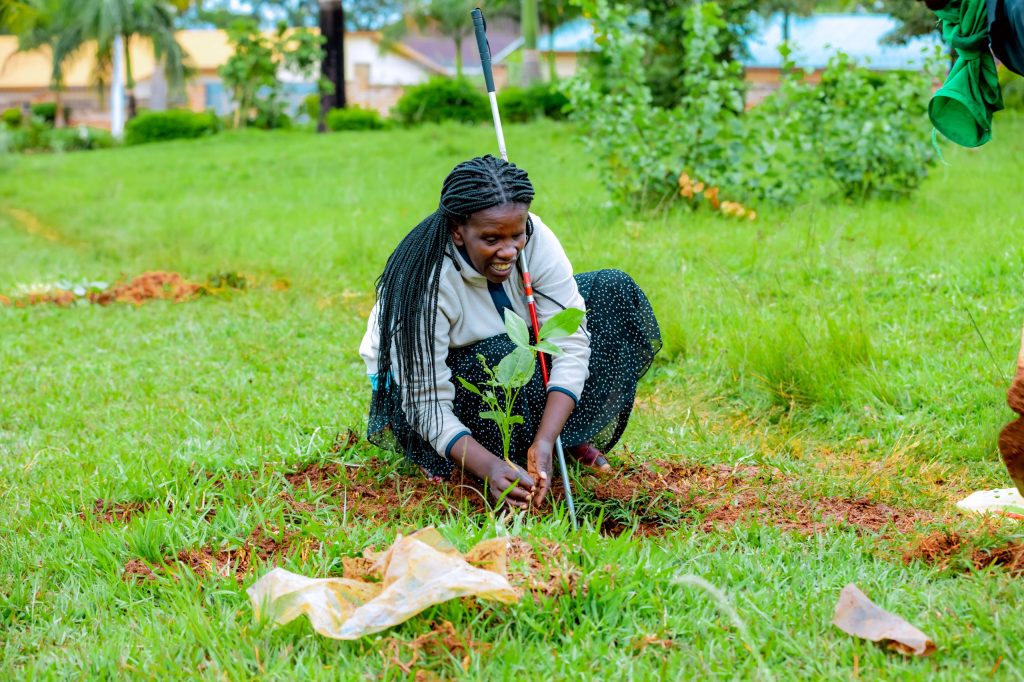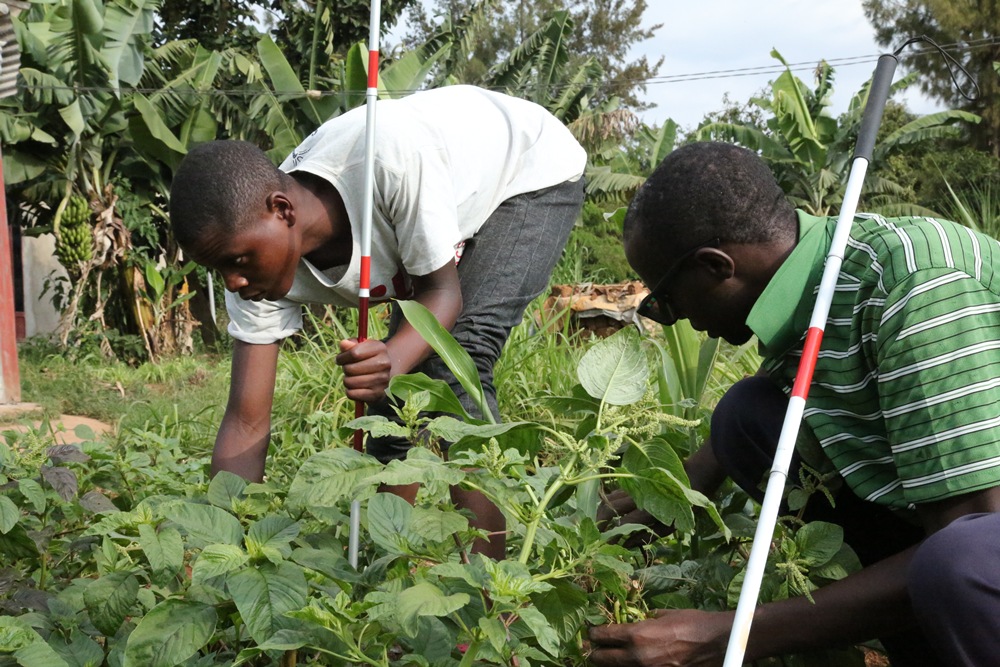The Executive Director of the Rwanda Union of the Blind…
Rwanda Marks International White Cane Day: Calls for Local Production, Respect, and Urgent Accessibility
Huye, Rwanda – Rwanda commemorated International White Cane Day on November 7 in Tumba Sector, Huye District, Southern Province, an event that saw over 300 persons with visual impairments receive essential white canes. The national celebration, held under the theme “Vision Beyond the Sight”, or sometimes expanded as “Vision Beyond Sight: Celebrating Independence, Resilience, and Recognizing Achievements of the Blind”, brought together hundreds of participants, district officials, and partners to honor the independence, dignity, and inclusion of Rwandans with visual impairments.
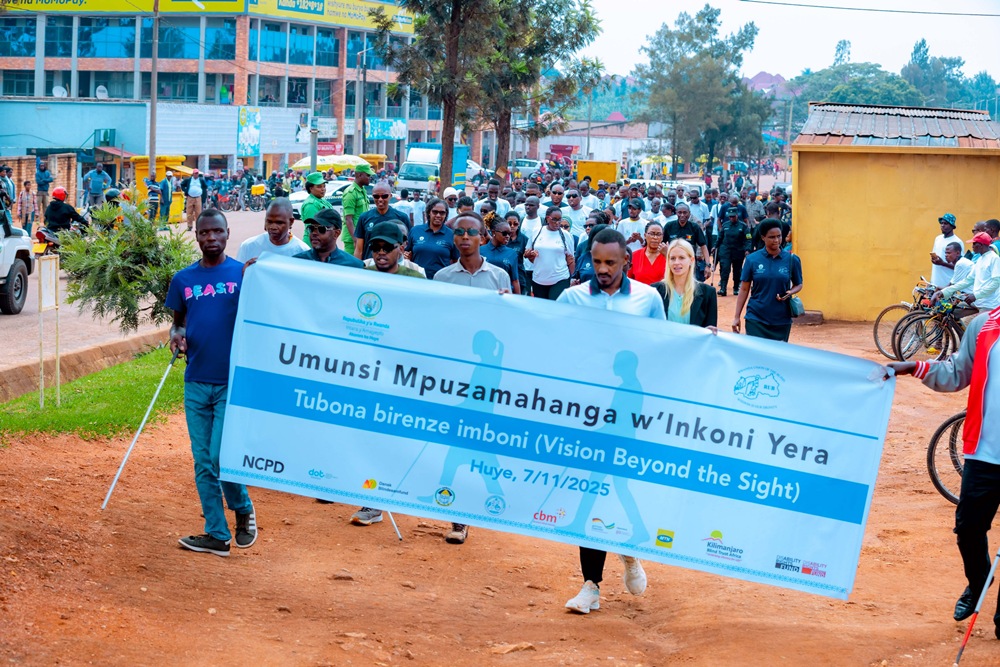
The purpose of the event was to raise awareness about the white cane, which serves as a global symbol of mobility, independence, and dignity for persons who are blind or visually impaired.
Pre-Event Advocacy: A Call for Respect
Ahead of the celebration, the Rwanda Union of the Blind (RUB) utilized a press conference on October 31, marking the 17th commemoration, to highlight critical issues and advocate for greater respect for the white cane.
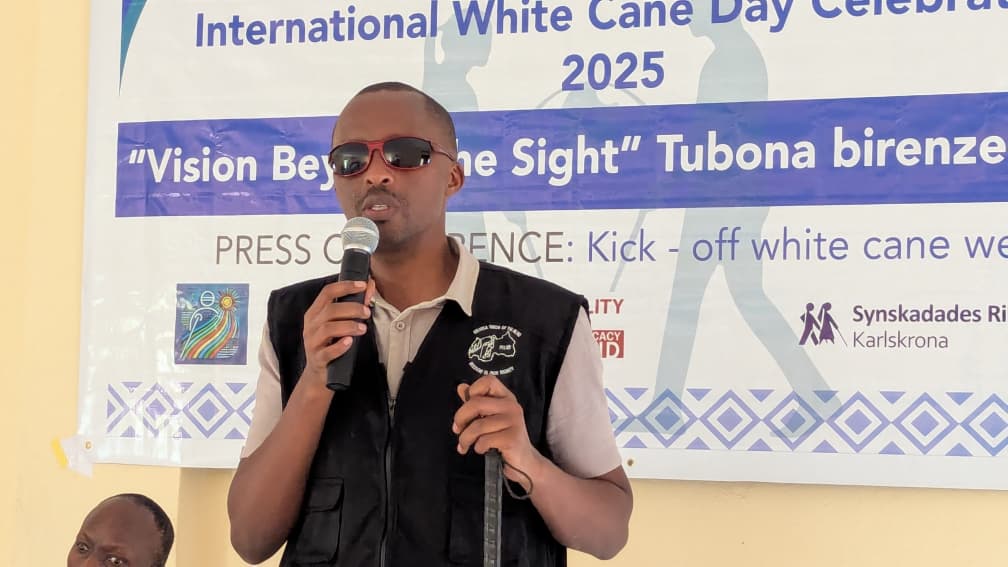
RUB Executive Director, Jacques Mugisha, stressed that the annual event serves as a crucial platform to educate the public about the cane’s significance. He emphasized that the white cane is like an “organ for a blind person” and is considered their “eye,” as it allows them to “see”. He argued that interfering with the white cane is akin to “poking a blind person in the eye,” noting that in Rwandan culture, pointing a finger at someone’s eye is forbidden. Mugisha expressed concern that some individuals, including drivers who strike the cane while visually impaired people are walking, still fail to respect it.
Mugisha also noted that people often misjudge the visually impaired as incapable, but stressed that they “use the power of their minds to see beyond their physical sight,” despite the obstacles they face.
Independence, Confidence, and Insufficient Supply
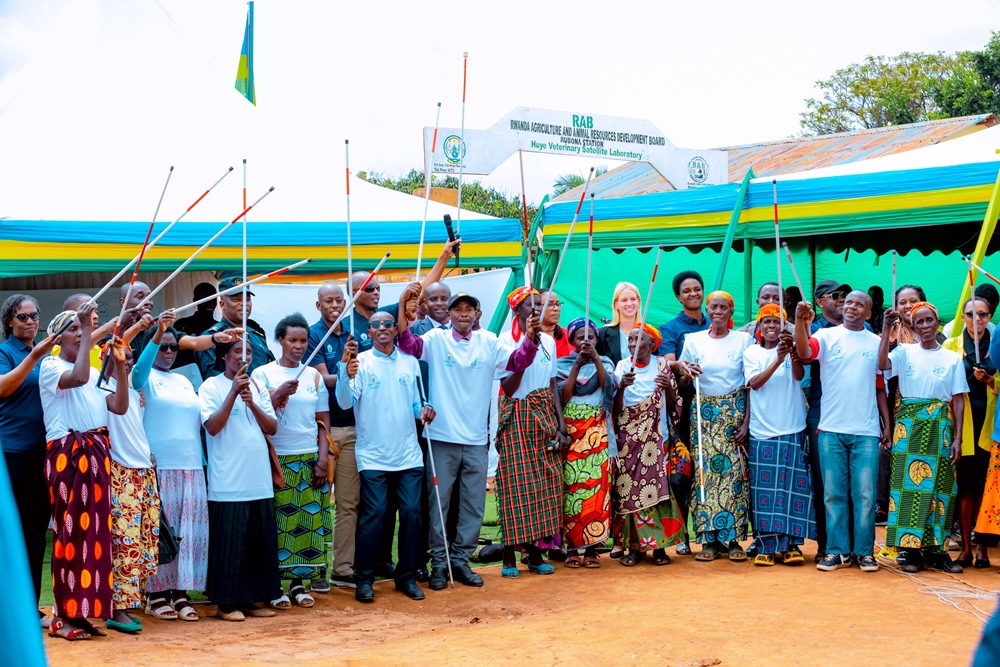
For the beneficiaries who received the 300 white canes during the ceremony, the day was both deeply emotional and symbolic. Hakizimana Gaspard stated that the white cane is essential, declaring, “You cannot separate a white cane from a blind person because it is their life”. He explained that possessing the cane restores confidence and allows them to move freely without help, leading to increased independence. Musabimana Venancia called the cane “an extension of our body,” helping them “to see and feel like others” and affirming that visually impaired people are capable and only need opportunities.
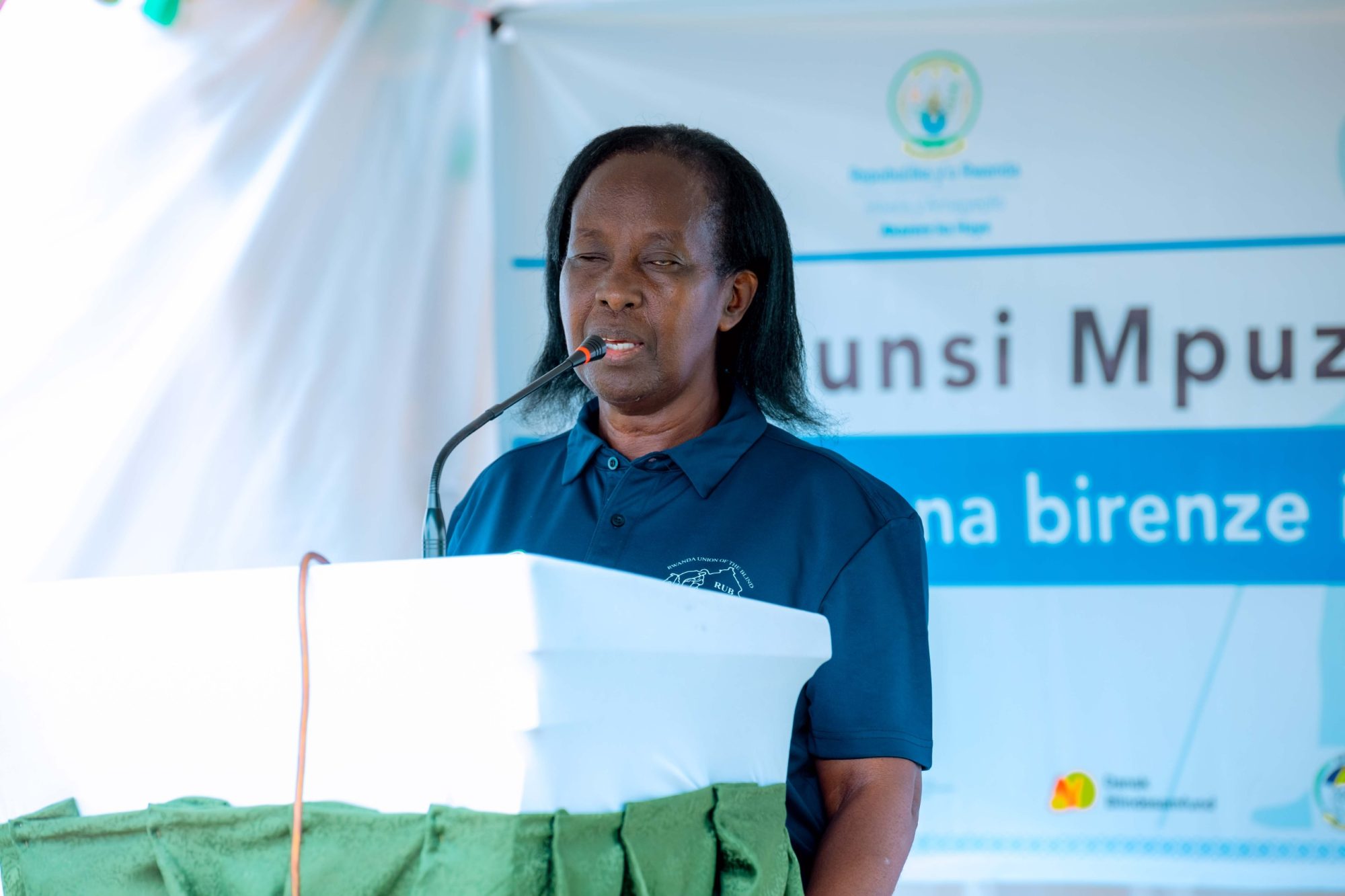
Dr. Beth Mukarwego, Chairperson of RUB, reinforced this sentiment, explaining that the cane provides independence, confidence, and the ability to reach previously unreachable places.
However, during the press conference, Mugisha pointed out that while White Cane Day serves as an advocacy platform for mobilizing resources, the current distribution remains insufficient. He reported that 1,485 canes have been distributed so far, a number he described as inadequate compared to the total visually impaired population in Rwanda, urging relevant authorities to take further action.
The Barrier of High Cost
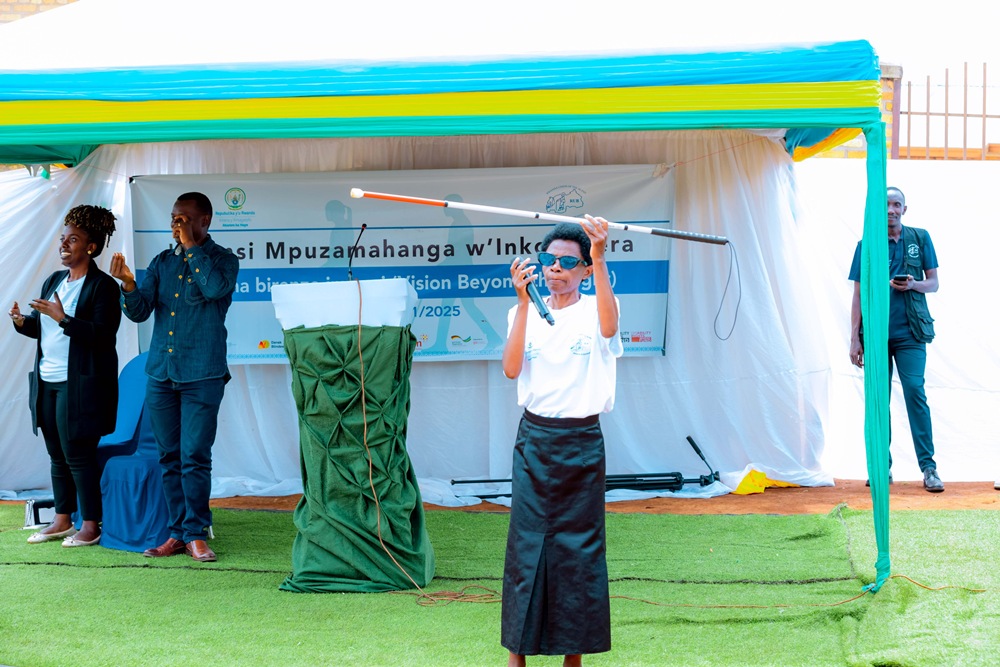
A major challenge dominating the discussions was the excessive cost of the canes, which hinders accessibility. A single white cane costs between 35 and 45 US dollars (over 50,000 Rwandan francs), making it unaffordable for ordinary citizens with disabilities.
Uwamahoro Claudine voiced concern that because there is no factory in Rwanda producing white canes, importing them is very expensive. Visually impaired individuals requested government assistance to establish a local production unit to make the canes more accessible.
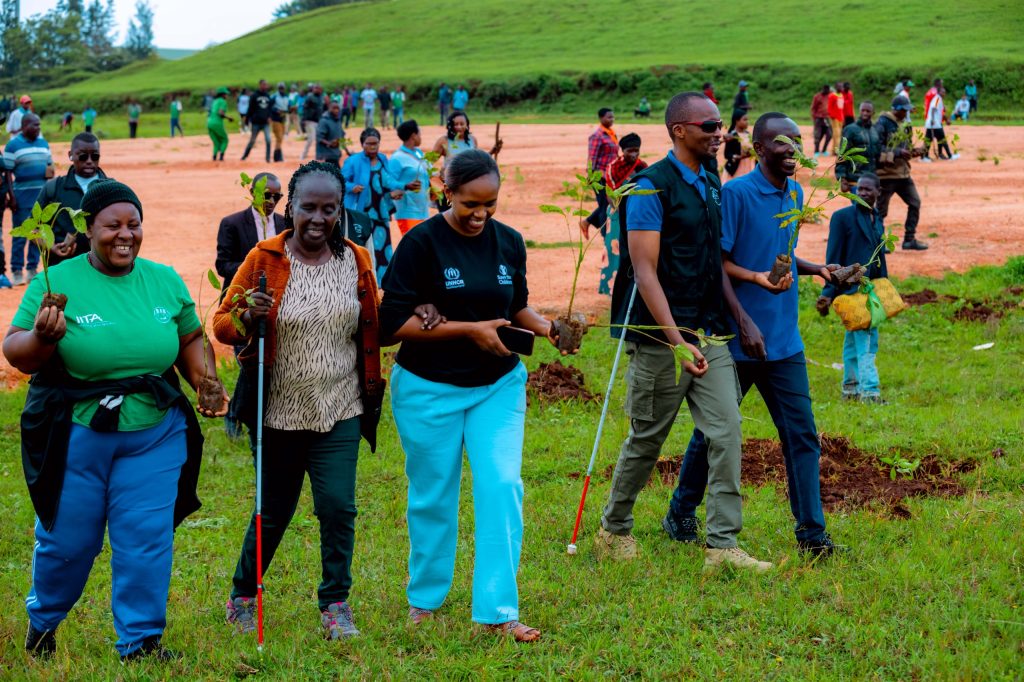
Dr. Mukarwego specifically highlighted the impact of the high cost on education, noting that the white cane is a vital tool enabling visually impaired children to attend school, but many families cannot afford to buy the necessary, imported and expensive equipment.
To address the financial burden, Jacques Mugisha stated that RUB is collaborating with the Rwanda Biomedical Centre (RBC) and the Rwanda Social Security Board (RSSB) to have the white cane included on the list of imported medicines. This measure would allow the cane to enter the country without tax, thereby reducing the price and making it available in district pharmacies. Jean Tuyambaze, a visually impaired participant, also called for the cane to be included in the Community-Based Health Insurance scheme to ease replacement costs when the canes break.
Inclusion and Community Contribution
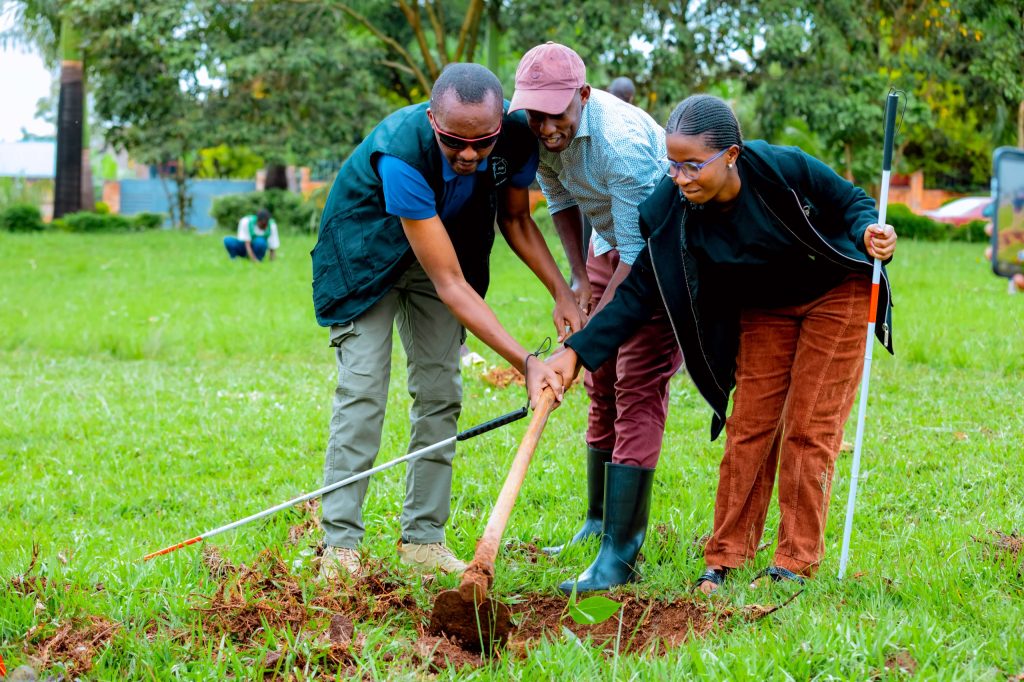
Ahead of the November 7th celebration, RUB organized a week of activities. This included community work (Umuganda) in Huye District, where 40 visually impaired individuals joined local residents to plant 4,350 trees. Participants said this involvement demonstrates that disability does not limit a person’s contribution to society. Regine Umuhoza, a student representative, shared that she planted four trees, proving that all Rwandans can engage in community work regardless of disabilities.
Dr. Mukarwego urged employers to offer equal job opportunities, stressing that the cane represents determination, not inability, and that persons with visual impairments “perform well and inspire others” when given a chance.
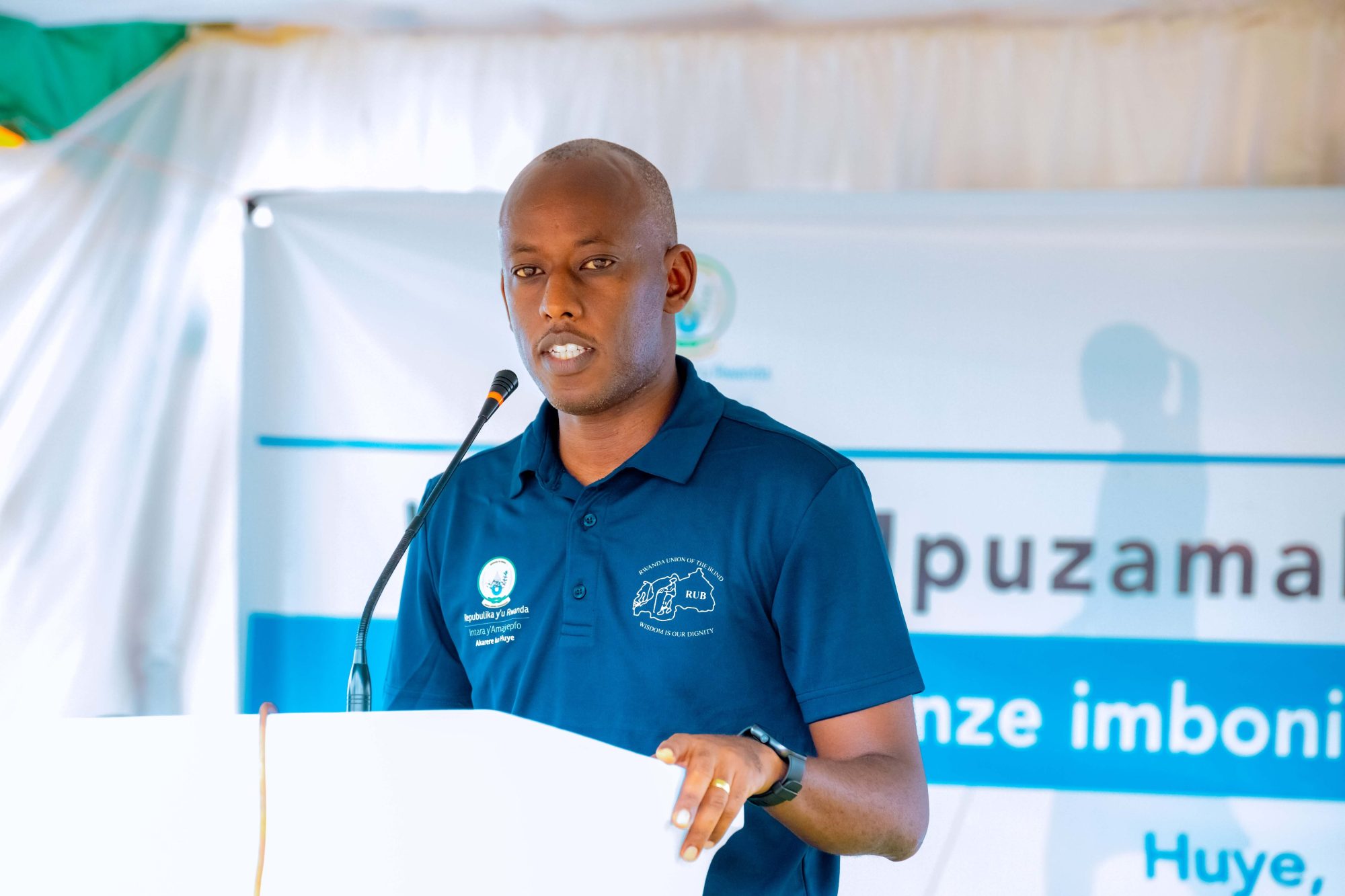
Huye District Mayor, Ange Sebutege, reaffirmed the district’s commitment to supporting people with disabilities through inclusive development programs. He praised participants for their contribution, stating that in every national program, no one should be left behind. Sebutege’s goal is to ensure these tools are available across all districts and to strengthen disability-friendly services in public institutions, health centers, and and schools.
RUB intends to continue advocacy by holding consultative meetings with government ministries and affiliated institutions to discuss improving white cane access, promoting dignity, and ensuring full inclusion in Rwanda’s development journey.
